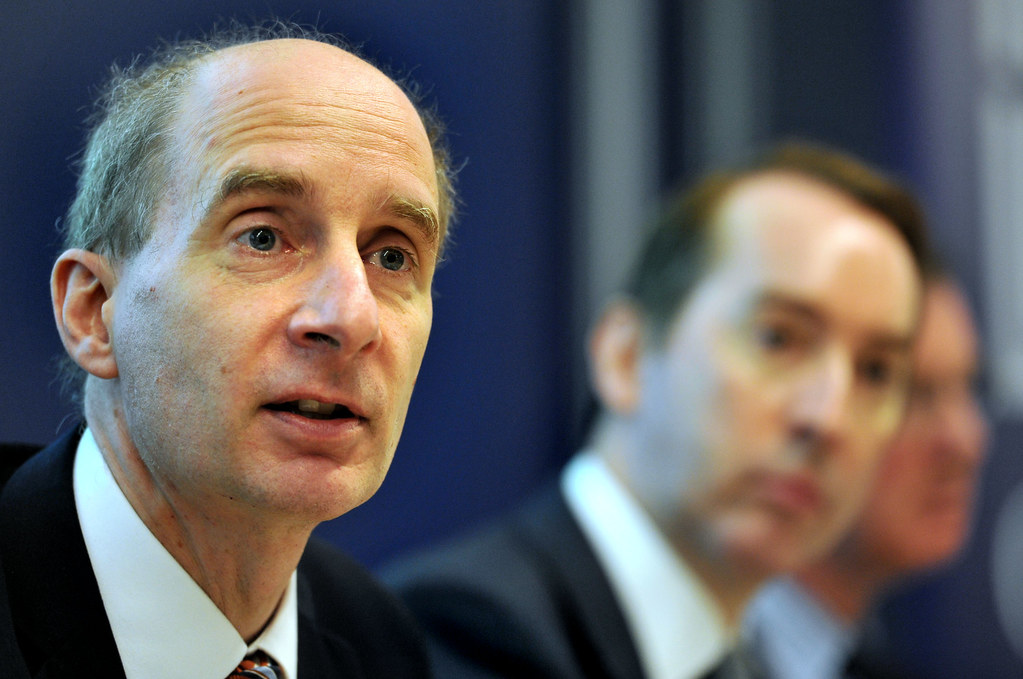Whenever the government feels senior figures from other sectors are earning too much money to be publicly acceptable, it resorts to the spurious comparison with the ‘Prime Minister’s salary’. As Theresa May struggles to make ends meet on a basic wage of around £150,000, this is used as example of what others should consider to be satisfactory remuneration for a year’s labour, regardless of market forces and the status of employment.
That it conveniently ignores the other benefits a prime minister receives, such as a flat in a desirable central London location and a lavish country pile, oddly hasn’t prevented it from being a tool for public embarrassment and blackmail.
And thus, it is now the turn of university vice-chancellors to be subject to this method of public opprobrium, though in this case perhaps with more justification. It follows the campaign by former Labour cabinet minister Lord Andrew Adonis – the architect of student fees in the Blair government – who has been railing against what he perceives as the excessive pay of vice-chancellors as part of a wider mission to see the current students fee system scrapped.
 |
| Lord Adonis |
According to a study published by the Times Higher Education magazine earlier this year, the average take home package of a vice-chancellor was £257,904 in 2015/16, 2.5 per cent up on the previous year.
Lord Adonis has accused vice chancellors of increasing ‘their own pay and perks as fast as they increased tuition fees’.
In July he wrote:
‘Debt levels for new graduates are now so high that the Institute for Fiscal Studies estimates that three-quarters of graduates will never pay it all back. The Treasury will soon realise it is sitting on a Ponzi scheme.’
And speaking to me yesterday, Lord Adonis predicted that unless universities voluntarily cut their student fees they will be abolished by the next government, regardless of which party is in power. He said:
‘The vice-chancellor pay controversy is directly linked to the tuition fees crisis. The universities have got to start cutting their fees, and they can fund this in part by slashing their bloated senior management salaries and budgets.
‘The vice-chancellor pay controversy is directly linked to the tuition fees crisis. The universities have got to start cutting their fees, and they can fund this in part by slashing their bloated senior management salaries and budgets.
'Unless the universities cut their fees, I predict they will be abolished entirely by whichever party is in government after the next election, if not before. The student vote will see to that.’
Perhaps there is an argument that the government has to start somewhere but it currently seems determined to retain the current fees system, dismissing any claims of a crisis, despite students from almost every university now facing the prospect of being lumbered with £50,000 debt after graduating, regardless of the quality of the course. During Jo Johnson’s appearance on the Today programme on Thursday morning is was noticeable the universities minister didn’t raise the matter and was only forced to defend it when it was raised by interviewer Justin Webb.
Universities will face fines unless they are able to justify salaries over £150,000 to the new Office for Students. It’s chief, Nicola Dandridge, was, somewhat hilariously, hired on a salary of £200,000 and has now remarkably ‘volunteered’ to take an 18 per cent pay cut to show the way, reducing her pay to £165,000. (This worthy act of volunteering rather puts me in mind of that old Beyond the Fringe sketch where Peter Cook, playing the role of a senior officer, tells a private: ‘I want you to lay down your life, Perkins. We need a futile gesture at this stage.’)
Universities, meanwhile, angrily deny any relation between the rocketing of student fees and their own soaring pay packets. They say the pay rates reflect the going rates of the international market and to get the best candidates they must offer the best packages they can.
Pay packets and student fees are hard to separate especially as the standard of courses is so variable and students will increasingly demand a return for the bills many are likely too be paying for the much of rest of their lives. There is a danger the government will be seen to be tinkering around the edges if it only focuses on the salaries of university senior management and doggedly continues to dismiss the problems swirling around tuition fees.
Jeremy Corbyn's intention to scrap the system entirely, mooted before the last general election, may not have been fully thought through and costed but without offering students an alternative, the Conservatives may well, as Lord Adonis predicts, be punished more severely at the ballot box next time.
 | ||
| Universities Minister Jo Johnson |
Universities, meanwhile, angrily deny any relation between the rocketing of student fees and their own soaring pay packets. They say the pay rates reflect the going rates of the international market and to get the best candidates they must offer the best packages they can.
Pay packets and student fees are hard to separate especially as the standard of courses is so variable and students will increasingly demand a return for the bills many are likely too be paying for the much of rest of their lives. There is a danger the government will be seen to be tinkering around the edges if it only focuses on the salaries of university senior management and doggedly continues to dismiss the problems swirling around tuition fees.
Jeremy Corbyn's intention to scrap the system entirely, mooted before the last general election, may not have been fully thought through and costed but without offering students an alternative, the Conservatives may well, as Lord Adonis predicts, be punished more severely at the ballot box next time.
No comments:
Post a Comment
The comments expressed do not necessarily represent the views of the blog.